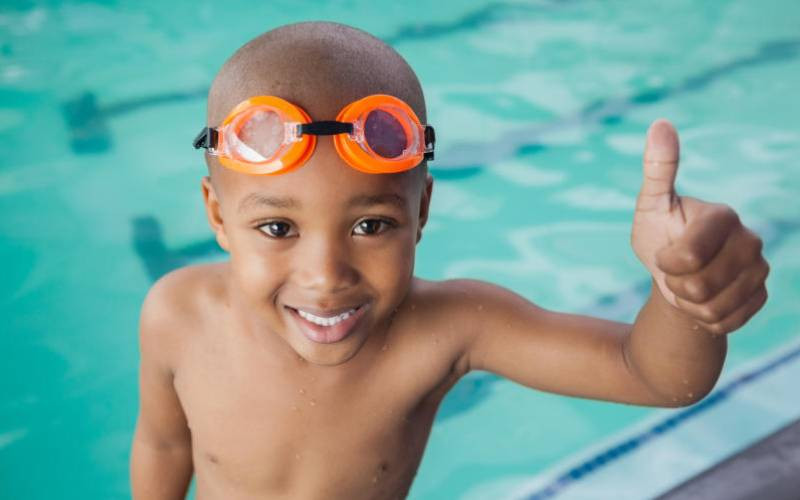
The topic of when children should be taught how to swim has been on people's minds lately. Recently we heard the tragic news that Davido's son tragically downed in their pool, and this has revived that whole discussion about children's safety around pools.
It's even scarier to think about how this isn't just a one-off situation. There have been other celebrities who have lost their children due to drowning like D'banj, and there are other hundreds of kids every year who are part of that statistic.
So, now the question is, when is the right time for children to be taken for swimming and pool safety lessons?
Generally, the age that is safest for children to start lessons is four years of age. However, some parents and safety instructors encourage these lessons as early as six months, supporting that there are many benefits of starting this early.
Let us look at some of the advantages and risks you need to know right below:
Training during infant stages (3 months to 11 months)Being in the pool can offer amazing benefits for babies. It is relaxing, it encourages bonding between parents and children, and it has some benefits for their cognitive development as well.
- Returning to work after maternity leave
- Teach your children good values at an early age
- Keeping your children busy over the holidays
- Safely include your children in the kitchen with these tips
Keep Reading
With proper training, babies are able to learn basics such as how to float on their backs. The process of training an infant how to swim usually takes a bit longer, but it is possible.
The issue with starting training at this age is that there is still no evidence that doing this will reduce the risk of drowning. These lessons can help to increase bonding during playtime in the pool but, they still don't have a sense of danger and neither are they able to swim independently. Constant supervision is mandatory.
Training during toddler stages (12 months to 3 years)At this stage, between one and four, they are starting to develop more. They are able to understand swimming and safety lessons better as compared to those who are younger.
At this age, these lessons can help to prevent cases of drowning, although they still can't fully swim independently.
The biggest problem here is when toddlers are thrown into the pool as a test of how well they can swim. This can be counterproductive and even cause severe water phobia as they grow older.
Training from age four (age 4+)This is probably the age that people agree children should be taken for lessons. They are able to understand basic precautionary steps around the pool as well as how to independently swim in case of danger.
In conclusion, the most important thing is to ensure that your child is being safely trained. You need to do all the checks to make sure that where you're taking them is a reputable place and that you're being involved in the lessons, especially for infants and toddlers.
And, if you have a pool at home, you have to up the safety by fencing the pool and taking other steps to prevent any accidents. Whenever you go for swimming, even for children four years and above, you still need to supervise them carefully.
 The Standard Group Plc is a multi-media organization with investments in media platforms spanning newspaper print
operations, television, radio broadcasting, digital and online services. The Standard Group is recognized as a
leading multi-media house in Kenya with a key influence in matters of national and international interest.
The Standard Group Plc is a multi-media organization with investments in media platforms spanning newspaper print
operations, television, radio broadcasting, digital and online services. The Standard Group is recognized as a
leading multi-media house in Kenya with a key influence in matters of national and international interest.

